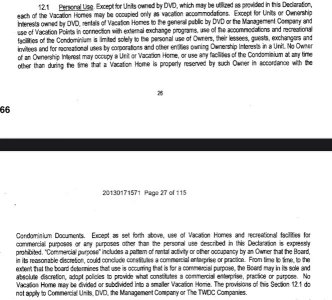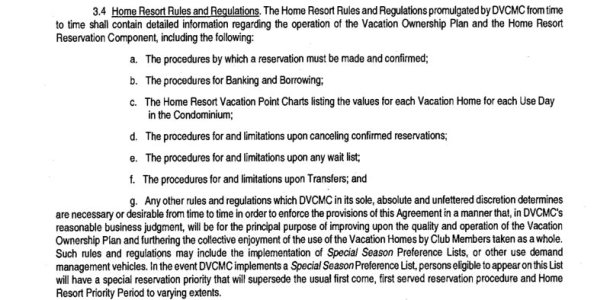Genie+
You can never spend enough
- Joined
- May 12, 2022
- Messages
- 6,468
Well said. All of it. That last part is where I think DVC can do something to curtail commercial use yet still leave the flexibility for personal use owners to rent.Not trying to argue this point any further but for those who (unwisely) take tax advice from internet strangers like myself, please note that federal and state governments consider profit to be pre-tax numbers.
I have also seen many posts throw out suggestions about what you can use to offset profit for a particular rental that would subject you to willful tax evasion penalties (e.g. saying your total cost of 2000 points is way more than your income from renting 200 points in one year)— this isn’t directed at @AstroBlasters but for those of you who are renting points (or considering it), definitely check with a CPA about what can and cannot be written off against the income.
I’m not sure how it impacts breakage profits, but Disney would be in a better position if they could buy points at $12-15 (a lot of what brokers are giving these days is $16 or less!) and sell it as OTUP for $20-25 (could probably get $25 at a few places if they started selling OTUP to owners before the 7m mark)…but also for owners, I think we’d be better off if Disney wasn’t targeting the same rooms, but potentially worse off if they are using the points to lock up holiday periods, etc. I’m honestly not sure how or when Disney can book with its own points.
If they can take a cut of all rentals, I think they would be better off than the status quo, and it appears they can’t stop a large chunk of rentals under the PoS, unless the renter has a pattern of activity that shows commercial purpose.
I think the reason why many who are lawyers on this thread gloss over it is that the language of commercial practice/commercial enterprise” itself doesn’t mean much more than “renting with the goal to make profit”— though I do think pattern of activity is probably significant and I think at least 99% of the people on this thread don’t think they will go after people who only very occasionally rent, even if picking rooms to maximize profit.
I think that is the crux of it— many of us don’t think (under a plain reading of PoS and FL statutes) that they need to change anything to crack down on people who routinely rent a material chunk of their points.
I don’t understand why that specific language would stop Disney from taking actions to give rentals lower priority (or just change the system to stop spec renting).
I’m not completely clear on what Disney can’t and can’t do to limit commercial activity, but it seems that, after stopping outright commercial enterprises, changing general rules to discourage spec renting (post booking name changes outside of a list of friends and family) would help a lot with curbing commercial practices (which are forbidden) without causing significant inconvenience to the membership at large. Like others, I often book a room for myself and add my family later— but they would all be on my F&F list so it wouldn’t be an issue.
We aren’t promised the highest potential price per point. That does not need to be protected as long as there are still avenues for renting excess points when the occasional need arises.
That’s what I liked about the Wyndham limit of 2 highest demand room/date per year. I don’t know if that could fly for DVC, just using as example. The owners can still do 2 high demand rentals per year, and rent until their heart is content otherwise. It’s reasonable. Even people relying on rental revenue can still make that work, like the people here saying they need to take a couple years off or help pay their own DVC use.
Commercial renters will be impacted in how much cream they can scoop out of the system. They won’t be able to grab the 3 nights at BC that just popped up at 5 months out if they already used limit of 2. They have an unfair advantage because they can pull whatever very high profit margin room shows up then find a use. Personal use doesn’t have 365 days a year they can make use of a reservation. It’s a different pattern of use. Most owners don’t play around with holding because it’s a pain in the… but commercial use laughs because they have plenty of reservations to help find something to absorb holding points. The bots and scrapers harm 11 months as well as whatever pops up after. They need the door not to hit ‘em in the…
Maybe DVC can define commercial as a percent of points used to date. 50% sounds reasonable to me. A new buyer can rent out 1.5 years of points if they also use 1.5 years of points. An owner who used their contract for 5 years can rent out the next 5 years. And everything in between. Then put the high demand rooms to a vote at those resorts. Do people want to limit 2 reservations not in owner’s name per year (and remember it is just certain rooms/dates, which is a fraction of the inventory)?






